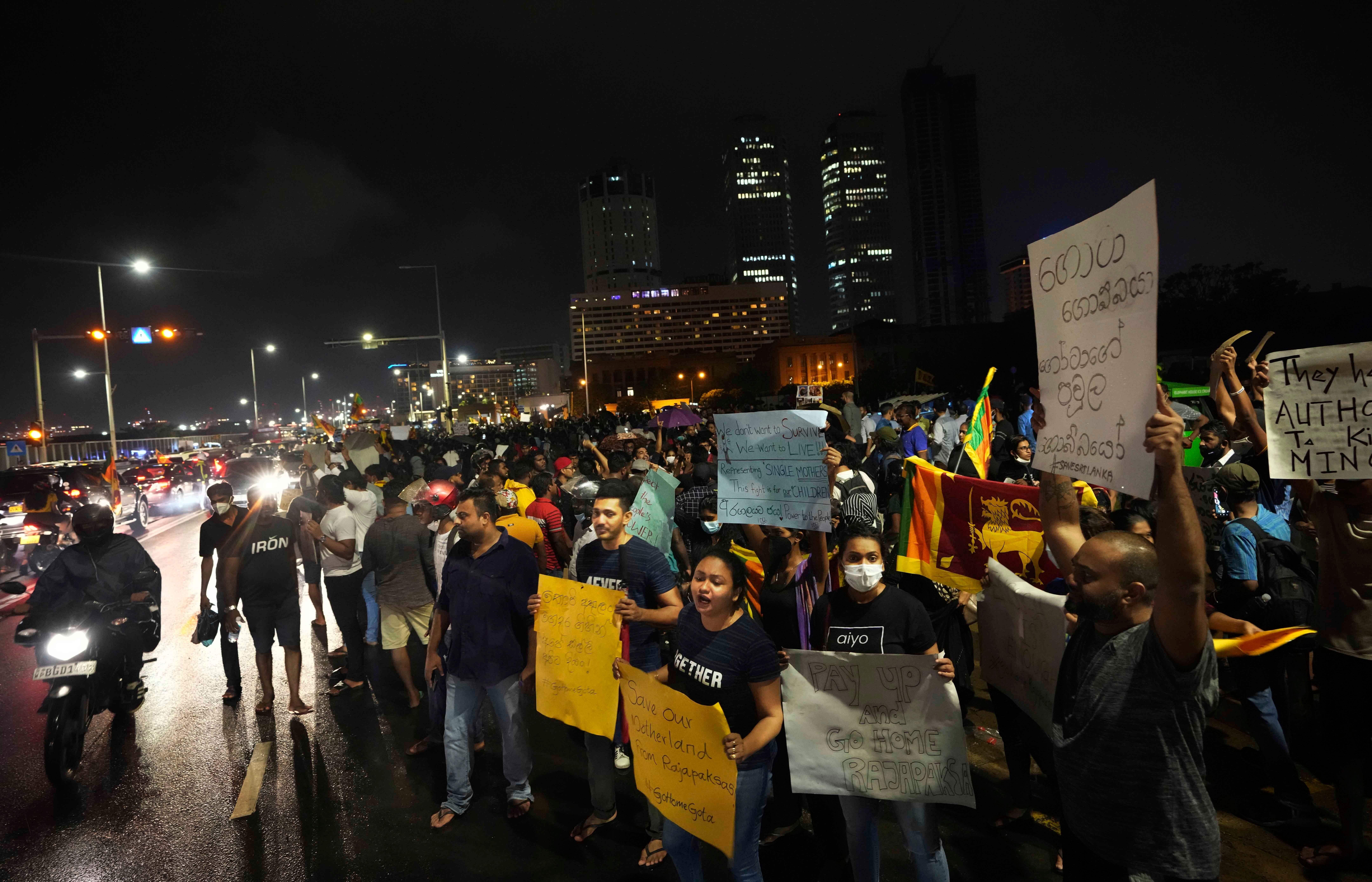Sri Lankan PM offers talks with protesters as opposition threatens no-confidence motion over economic crisis
Sri Lanka is in midst of worst economic crisis in recent memory, facing long queues of people trying to buy scarce essentials
Your support helps us to tell the story
From reproductive rights to climate change to Big Tech, The Independent is on the ground when the story is developing. Whether it's investigating the financials of Elon Musk's pro-Trump PAC or producing our latest documentary, 'The A Word', which shines a light on the American women fighting for reproductive rights, we know how important it is to parse out the facts from the messaging.
At such a critical moment in US history, we need reporters on the ground. Your donation allows us to keep sending journalists to speak to both sides of the story.
The Independent is trusted by Americans across the entire political spectrum. And unlike many other quality news outlets, we choose not to lock Americans out of our reporting and analysis with paywalls. We believe quality journalism should be available to everyone, paid for by those who can afford it.
Your support makes all the difference.Sri Lankan prime minister Mahinda Rajapaksa has offered to hold talks with the protesters who have sought his government’s resignation due to its handling of an unprecedented economic crisis in the country.
The South Asian country has seen mass protests against the government in recent weeks as it suffers fuel and food shortages, resulting in inflation, shortages of many basic necessities and hours-long power cuts. Throughout April, the country of 22 million people has witnessed long queues of people trying to buy scarce essentials.
Public anger led to widespread protests around the island nation, including the occupation of president Gotabaya Rajapaksa’s residence. Colombo echoed with slogans of “Go home Gota” as many thousands of ordinary Sri Lankans took to the streets demanding his resignation along with all the other members of the Rajapaksa family.
“The prime minister is ready to start talks with the protesters at Galle Face Green,” Mr Rajapaksa’s office said in a statement, referring to a protest site that has become the centre of discontent.
Since the weekend of 9-10 April, protesters have occupied the entrance to the presidential offices and received warm support from other members of the public, who brought them food and drinks to help sustain the sit-in.
Demonstrators at the tent encampment, which has been growing in volume with each passing day, announced that they would only leave the spot if the Rajapaksas stepped down.
“If protesters are ready to discuss their proposals to resolve the challenges currently facing the nation, then the prime minister is ready to invite their representatives for talks,” the prime minister’s office said.

In an address to the nation on Monday, the prime minister tried to evoke nationalist sentiment and said the government was “losing dollars” for every second spent “protesting on the road”.
However, Wednesday’s announcement came after the opposition in Sri Lanka signed a no-confidence and impeachment motion against the Rajapaksa government.
Nearly 50 members of the opposition Samagi Jana Balawegaya have signed the motion. "Without change, we will not stop," leader of opposition Sajith Premadasa said on Twitter.
According to the Sri Lankan constitution, at least 40 members from different opposition parties are required to sign a no-confidence and impeachment motion for it to be introduced in the parliament.
The government claims to hold a majority in the 225-member parliament, though more than two dozen lawmakers have left the ruling coalition in recent weeks.
The crisis and protests prompted many cabinet members to resign. Four ministers were sworn in as caretakers, but many of the key portfolios are vacant.
Meanwhile, the island nation on Tuesday announced a pre-emptive default on all its foreign debt worth $51bn as a "last resort" to survive its worst financial meltdown since 1948. It said that the country would divert the crippling dwindling foreign reserves to importing essentials.
"Recent events... have eroded Sri Lanka’s fiscal position [to the point] that continued normal servicing of external public debt obligations has become impossible,” the country's finance ministry said in a statement, adding that the war in Ukraine and the Covid-19 pandemic made it “impossible” to pay its creditors.
Sri Lanka is due to begin negotiations with the International Monetary Fund next week for a loan programme.
The nation’s foreign exchange reserves dropped to $1.93bn in March, down 16.1 per cent from a month earlier, the country’s central bank said. It reportedly has an estimated $8.6bn in debt payments due this year.

Join our commenting forum
Join thought-provoking conversations, follow other Independent readers and see their replies
Comments